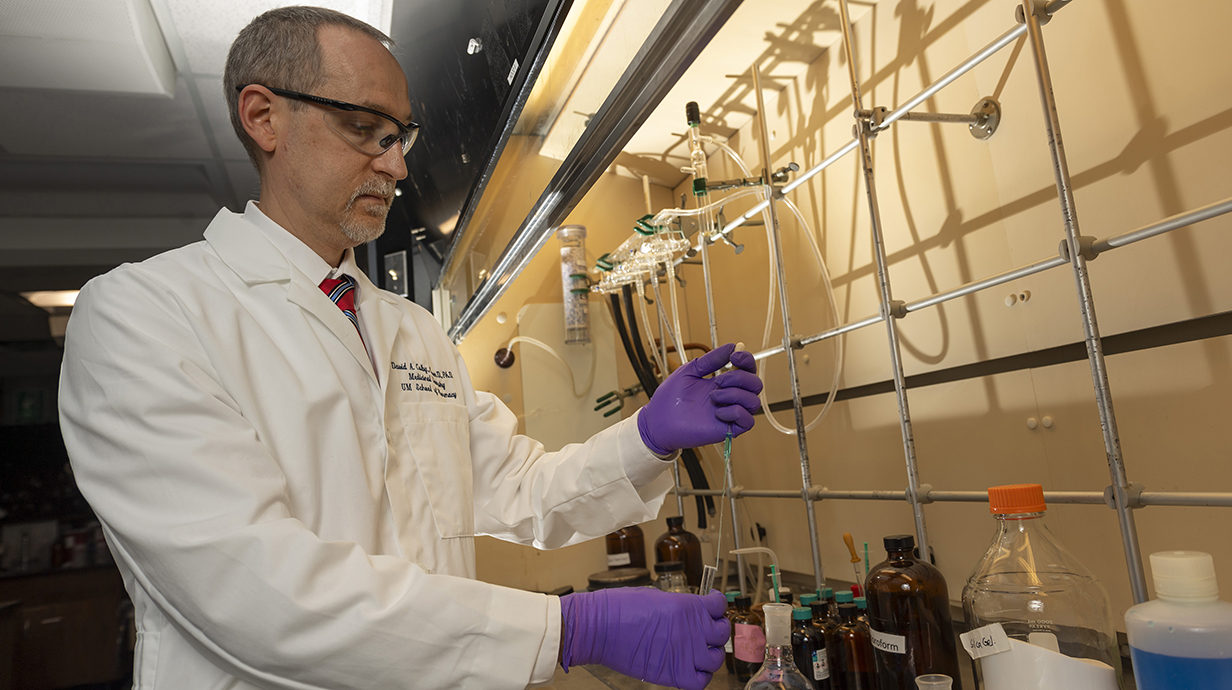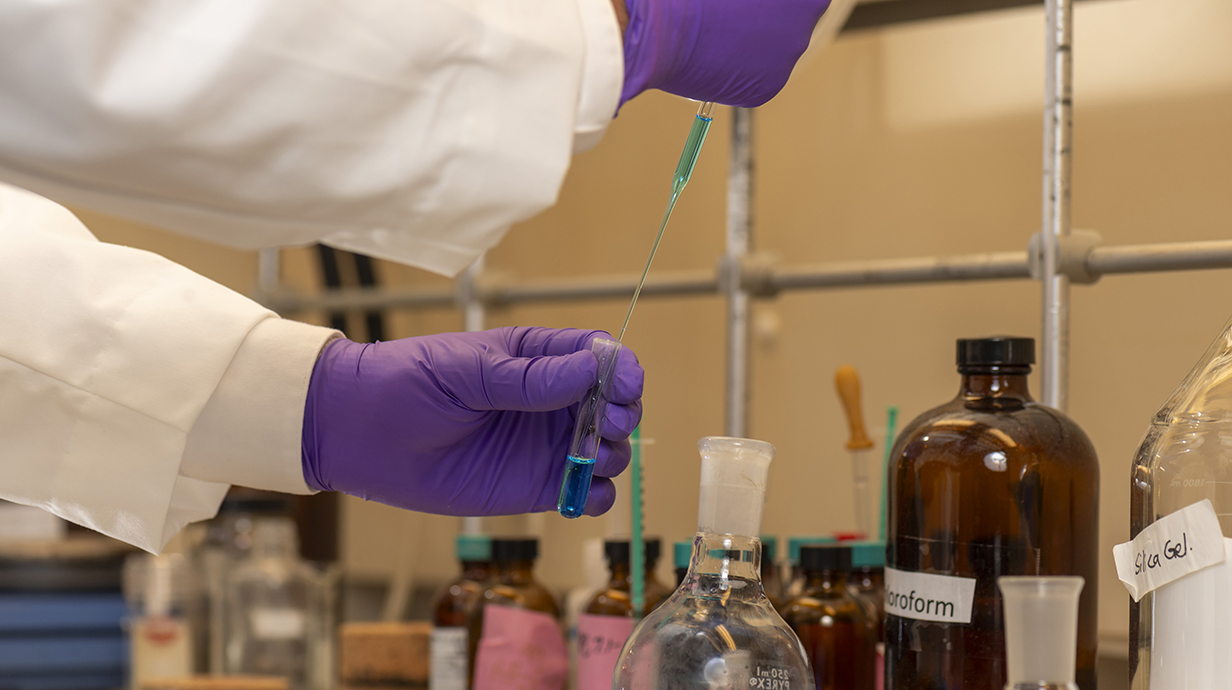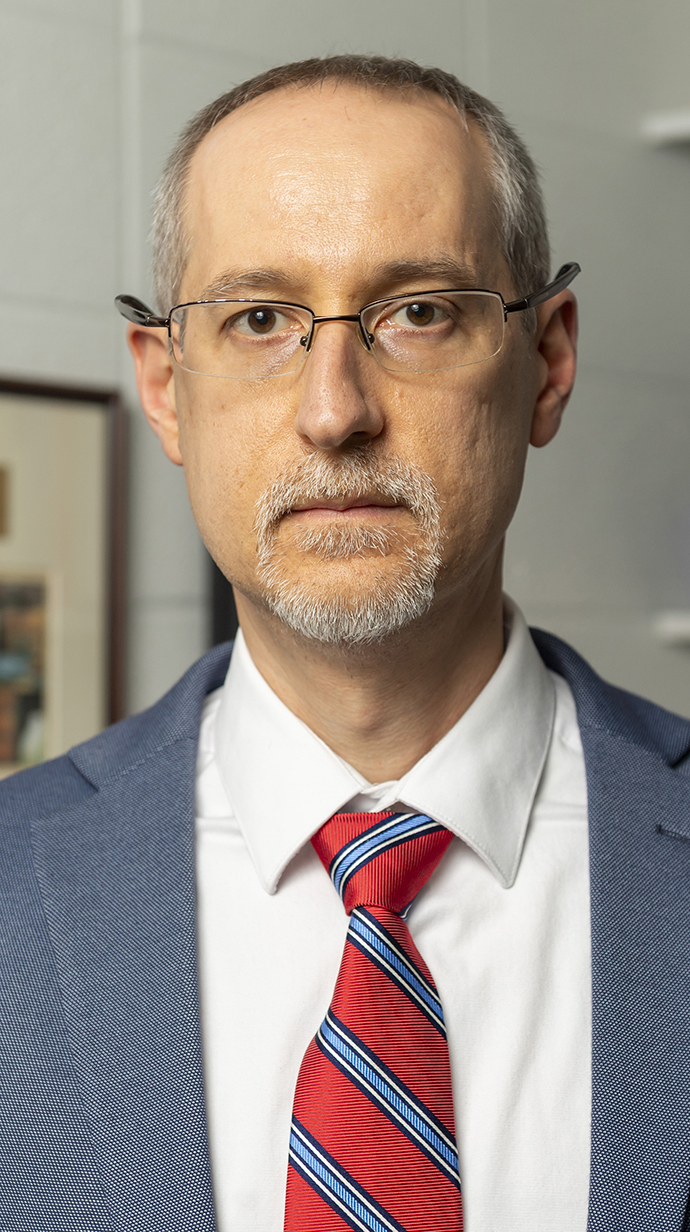Pharmacy Professor Named to NIH-Funded Entrepreneurial Cohort
David Colby named to I-RED program, launches startup for pharmaceutical solvents

OXFORD, Miss. – A University of Mississippi scientist has joined an inaugural cohort of entrepreneurs that will work to translate discoveries made at educational institutions into commercial products.
David Colby, professor of medicinal chemistry and research professor in the Research Institute of Pharmaceutical Sciences, has been named to the National Institutes of Health-funded, competitive IDeA Regional Entrepreneurship Development, or I-RED, program.
"I-RED is made up of key states in the regional Southeast that received less funding from the NIH compared to more populated ones," Colby said. "Their goal is to help faculty who are interested in or have already created a startup to successfully launch it in partnership with their institution's technology transfer office."

David Colby's work focuses on fluorinated solvents, which drug manufacturers use to dissolve the starting materials for drugs or medicines to make them into a usable formulation. Photo by Srijita Chattopadhyay/Ole Miss Digital Imaging Services
The Ole Miss researcher joins nine other members in the program, which is administered through XLerateHealth, a health care accelerator headquartered in Louisville, Kentucky. Participant areas of focus include medical devices, therapeutics, diagnostics and Colby's pharmaceutical solvent technology.
Colby's work focuses on fluorinated solvents, which are fluorine atom-containing liquids that can dissolve another substance. In drug development, manufacturers use fluorinated solvents to dissolve the starting materials for drugs or medicines to make them into a usable formulation.
"We recently discovered, published and submitted a patent application on an invention where we have made new solvents for the manufacture of pharmaceuticals," Colby said.
"It's an entirely new class of solvents with unique physical properties that will be beneficial to the development of pharmaceuticals – they will be easier and cheaper to make."
Manufacturers typically have limited options when it comes to synthesizing pharmaceuticals – only about two options, he said. The easiest way to improve the process of developing these drugs is to change the solvent. Colby's research aims to offer additional solvent options to these manufacturers.
"Having a larger toolbox of fluorinated solvents with unique properties will help these scientists more rapidly optimize the development of pharmaceuticals," he said. "These solvents could also be applied to other areas of manufacturing like microprocessor fabrication and agrochemicals."

Colby has launched a startup business, Fluoriq, to support this venture.
"An innovation-based startup needs support in the development of its technologies, but equally important is mentorship in the formation and running of a business," said Allyson Best, UM director of technology commercialization. "The I-RED program is a key component in Dr. Colby's training and will support UM's decision to license the technology to his startup.
"Our goal is that additional researchers from UM will apply for the next cohort."
Positioning Fluoriq in Mississippi is a strategic move for Colby. The university recently announced it is leading a consortium funded by the Economic Development Administration that is working to advance biomanufacturing capabilities.
"We have a powerful initiative from Chancellor (Glenn) Boyce to support biotechnology in our state," Colby said. "There is a major emphasis on growth in biotech.
"Right now, there is a major opportunity for businesses or startups headquartered in Mississippi that you could call biotech or biopharmaceutical manufacturing. We want to be one of the first major players involved."
This research was supported by XLerateHealth LLC and the National Institute of General Medical Sciences, grant 4UT2GM148083.
By
Erin Garrett
Campus
Published
January 30, 2024
